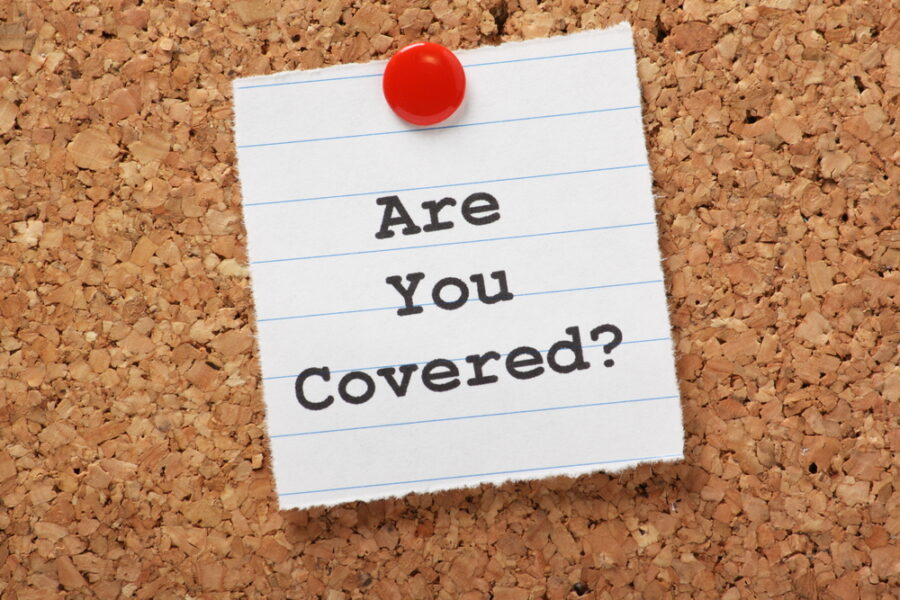What is Commercial auto insurance?
Commercial auto insurance is a specialized coverage for a business that addresses the unique risks of fleet operations. It’s not a personal auto insurance policy. It’s for businesses that have one vehicle for occasional deliveries to a large fleet that hauls goods across the country. That’s why it’s considered a business insurance.
This coverage protects against liabilities that can arise from accidents, theft, vandalism or other unexpected events involving company vehicles. By having commercial auto coverage, businesses not only protect their investment in transportation assets but also the continuity of operations no matter what the open road brings. It’s an essential part of a business risk management plan. You can’t operate as a motor carrier in the trucking industry without commercial trucking insurance.
How Much Does Commercial Auto Insurance Cost?
Commercial auto insurance costs vary widely depending on several factors such as type of business, value of the vehicles, driving history, and coverage required. Let’s break down the costs for various drivers:
Cost for Drivers Leasing from a Company:
When drivers lease a vehicle from a company, they often need to get their own primary liability insurance to cover damages to others in case of an accident. The average cost for this premium is $1,000 to $3,000 annually. This wide range is due to variations in driving history, type of vehicle being driven, and area of operation. Note that the company from which they are leasing might have certain insurance requirements that the driver needs to meet. In addition to primary liability, drivers might also need to get physical damage coverage (which covers damage to the leased vehicle) and this can cost an additional $1,500 to $2,500 a year depending on the value of the vehicle and chosen deductible.
Cost for Owner-Operators:
Owner-operators who own and operate their own vehicles usually have the highest insurance premiums because they need full coverage. An owner-operator can expect to pay anywhere from $8,000 to $14,000 annually for a comprehensive commercial auto insurance package. This would include primary liability, physical damage, and possibly additional coverage like cargo insurance depending on their business. As with all insurance rates, these figures can vary based on age, type of vehicle, geographic location, and type of cargo they are hauling. Clean driving records also affect commercial truck insurance costs especially for owner-operators.
Cost for Company Drivers – $0:
Company drivers are in a special situation when it comes to commercial auto insurance. They don’t need to pay for their own commercial auto insurance since they operate vehicles owned by the company they work for. It’s the company’s responsibility to provide and pay for all necessary insurance coverages. So company drivers have an insurance cost of $0.
What vehicles are covered by commercial auto insurance?
What’s covered? Commercial auto insurance covers a wide range of vehicles including but not limited to cars, trucks, vans, buses, and various trailers. Any semi-truck would need to be covered by this insurance. In essence, if a vehicle’s primary use aligns with the business needs, it generally falls under commercial auto insurance.
What’s Not Covered?
Commercial auto insurance while broad has its limitations. Personal vehicles not used for business purposes are usually excluded even if they occasionally do business-related activities. Intentional damages caused by the insured party are not covered. Some policies may exclude specific types of cargo especially if it’s hazardous.
Wear and tear, mechanical breakdowns, and damage from war or nuclear risks are also excluded. Policyholders must review their policy documents and talk to their insurance provider to understand what’s covered and what’s not.

What is Load Insurance?
Load insurance also known as cargo or freight insurance is designed to protect goods being transported by trucks, sea, rail, or air. It kicks in if the cargo is damaged, lost, or stolen during transit.
While commercial auto insurance covers the vehicle and liabilities, load insurance covers the actual value of the cargo. Its coverage includes risks like collisions, fires, theft, and other external events that can damage the goods in transit. If you’re an owner-operator you won’t want to haul any loads without load insurance coverages.
Owner-operator truck insurance for long-haul truckers
Owner-operator truck insurance is a must for long-haul drivers who are not affiliated with a company. Determining the right coverage amount depends on many factors such as the type of cargo being hauled, regions of operation, and the truck’s value.
A basic liability insurance policy for owner-operators can cost from $5,000 to $12,000 per year depending on the operation and coverage limits. However, it’s important to have comprehensive coverage that meets the legal requirements but also covers all the risks involved in long-haul trips.
Risks of Owner-Operator Trucking Insurance
Navigating owner-operator truck insurance has its own set of challenges and risks. One major concern is being underinsured. While there are minimum coverage requirements by law, these may not be enough for every situation. For example, carrying the minimum may leave a trucker financially exposed in case of a catastrophic accident or a lawsuit that exceeds the policy limits.
Some policies may not cover all the risks, for example, cargo theft in certain areas or non-collision damage like fires or floods. There’s also the risk of overpaying for insurance due to a lack of information or not regularly reviewing and adjusting coverage based on changing needs. Misunderstanding policy clauses or not knowing the exclusions can result in denied claims and the owner-operator will have to pay for it.
These costs and risks can mean owner-operators will pay big time for their commercial auto insurance policy and the other things it doesn’t cover.

Is commercial vehicle insurance required?
Commercial vehicle insurance is indeed required for vehicles used for business purposes. This insurance is to protect against liabilities, accidents, or damages that may happen during business operations.
But if you’re a company driver, the financial responsibility of this insurance doesn’t fall on you. Instead, the company that employs you will pay for the insurance premiums and you will be insured without the cost. It’s a big advantage for company drivers, they are relieved of the direct financial burden of insuring their commercial vehicles.

What’s right for you?
Determining what’s right for you depends on many factors such as the type of business you have, the vehicles you operate, and the risks involved. If you’re planning to start your own company, getting your own insurance is a must. It will protect your investment and be a safety net against unexpected events like accidents, thefts, or damages. But that comes with the responsibility of researching, comparing, and managing your premiums.
But if you choose to drive for a company, you’re relieved of the direct insurance concerns as the company will cover it. Company driving can be a better option for those who want to avoid the hassle and financial burden of getting and maintaining their own insurance. The choice between the two depends on your comfort with risk, financial capacity, and long-term career goals.
Disclaimer: The information contained in this post is general in nature and should not be considered complete or used in place of a visit, call, consultation or advice of your physician or other mental health-care provider. Should you have any mental health-care-related questions or concerns, please call or see your physician or other health-care provider promptly.


